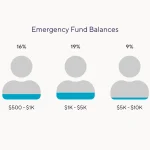
Forex (Foreign Exchange) trading is the practice of swapping one currency for another across a global market that never closes.
Being able to see the opening and closing times of institutions for foreign exchange can help you understand the pattern of ebb and flow in terms of the activity of the market. This, and being able to recognise ebb and flow, will trim your planning for trades and to get exposure to different time zones. An overall forecast of exchange, a plan showing transactions, and analysis of gains and losses are all facilitated by an Forex Trading Hours Chart.
It’s Easy
Forex trading is not as difficult as it seems and with hard work and practice, and a good basic education, it is possible to work on the road and make real money. A great way to start your forex education on the road is to work with a practice (demo) account and paper money so you can easily do your homework, road testing, and create robust structures and strategies. It also allows you to adhere to proper risk management and stop trading with those real funds.
The second key difference is that forex is traded on a global decentralised network of banks so there is no trading or closing bell per se, which means you can trade 24 hours a day and sessions overlap each other, giving you the ultimate flexibility.
Finally, forex trading is another potentially lucrative source of travel income which, despite imposing sky-high transaction costs, can offer high leverage on your shiny new account balanced with the convenience of being able to trade 90+ currency pairs. Get it right, and you could see forex trading as yet another viable travel job!
It’s Flexible
Forex trading is a good side hustle activity when travelling as it will return with significant results that will cater for your travel experience. Trading is an activity that can be done in any country with a good internet connection, depending on whether the jurisdiction has a regulatory body that governs trading, and depending on your travel schedules or preference you can choose an activity that suits you (day trading requires the most effort compared to swing or investing trading, and the latter requires travelers to devote much less time and energy).
Travelling is a great benefit when you are a trader because it broadens your awereness and makes your mind more open to new countries and cultures. Secondly, experiencing cultures of different people when you are travelling can also develop one’s thinking skills creatively, which is another key requirment for winning in trading investments.
It’s Liquid
Most people who travel abroad exchange some money back home for the local currency, usually at a bank or bureau de change. What you come back with is based on a forex rate; forex traders, who don’t yet know what a certain currency will be worth, buy or sell thanks to speculation about how those values may change.
There’s no central exchange such as the New York Stock Exchange to oversee trading, and currency transactions take place on a dealer-to-dealer basis over-the-counter rather than through brokers, with the result that the market is very thinly capitalised and highly liquid, reacting almost instantaneously to news.
Three types of market create the forex market: spot, forward and futures. Spot is the simplest – you buy one currency against another, and you pay the price it has right now; forward and futures are private contracts to buy or sell currencies at a set date in the future.
It’s Global
Forex trading can provide opportunities, while also serving as one of the best travel jobs as you can trade from virtually anywhere using simply a steady connection to the internet and broker as long as there is a computer available. When it comes to travel, for those looking for a thrill, and the opportunity to earn steady income, forex is as one off those best travel jobs one can come across.
The prices set in forex are used to determine the daily exchange rates of most of the world’s currencies, which a tourist can rely upon when converting dollars into euros in a currency kiosk – or a bank. Some have estimated that forex prices contribute to pricing goods and services from ever corner of the globe.
In forex trading, unlike the stock market, one can trade at any time, during sessions held in different time zones, and thus take advantage of them as they emerge.


